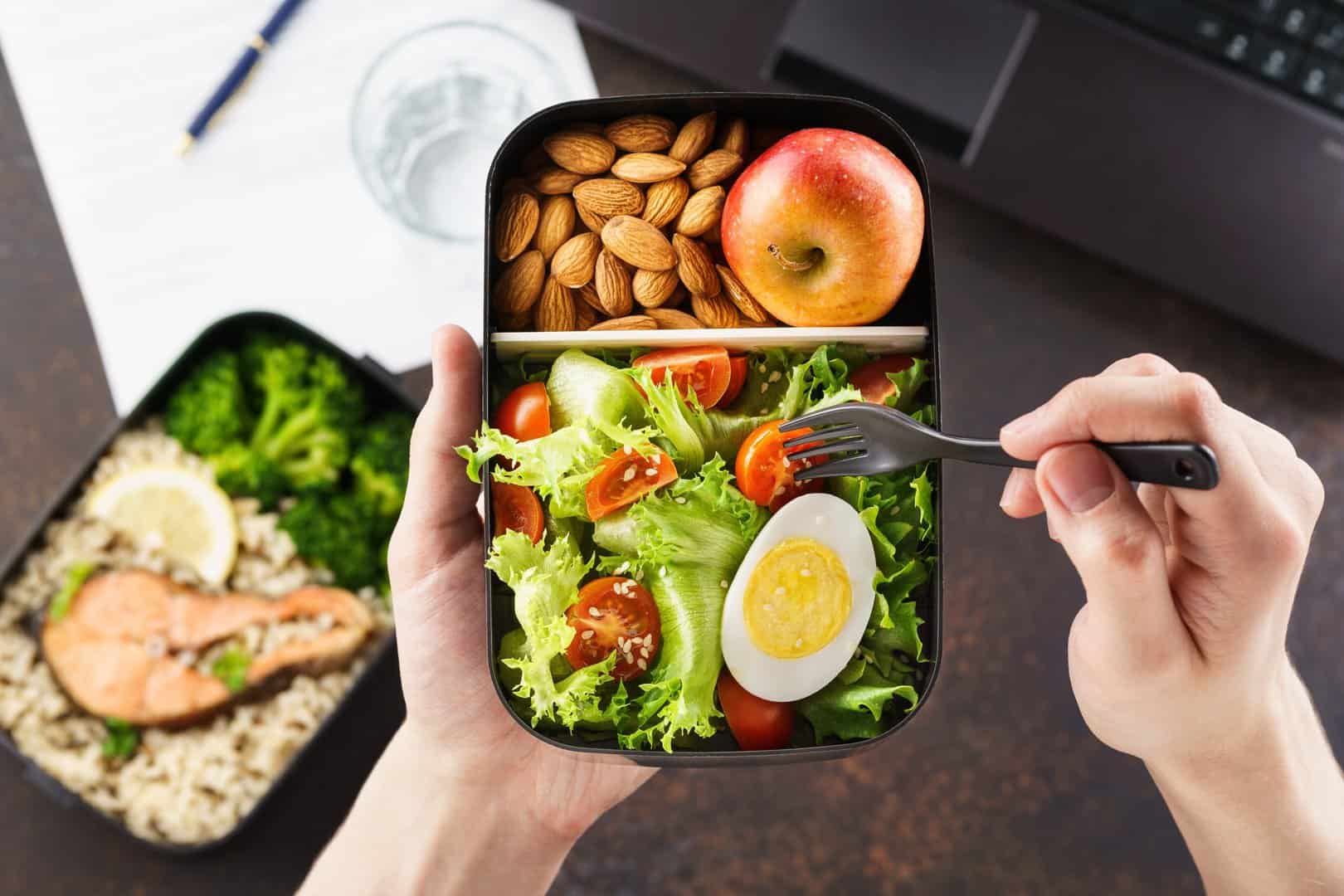
In a world where convenience often trumps health, the humble packed lunch for adults is making a powerful comeback. Say goodbye to the siren call of ultra-processed “meal deals” and take control of your midday meal. Not only does bringing your own lunch put you in charge of what goes into your body, but it can also save you money while promoting better overall health.
The Pitfalls of Purchased Lunches
Those enticing meal deals often lead us down a slippery slope. A seemingly innocent pre-packed sandwich, soft drink, and a snack can quickly turn into a heap of ultra-processed foods that wreak havoc on our health. Here’s a glimpse into the repercussions of such choices:
Many purchased lunches can send your blood sugar levels on a rollercoaster ride. This can result in:
- Weight gain
- Increased appetite
- Cravings for quick-fix snacks, coffees and sugary drinks in the afternoon
- Lower energy levels
- Poor concentration
- Reduced productivity
These undesirable effects occur because purchased lunches tend to be high in refined carbohydrates and sugars, lacking in fibre, vegetables and adequate protein. The resulting spike in blood sugar is often followed by a crash, leaving you feeling drained and less focused.
When you are buying meals on the go, remember that profit comes before quality and nutritional value. Ingredients lists can be a revealing read, highlighting that many purchased lunches fail to provide the recommended proportions of protein, healthy fats, vegetables, fibre, and wholegrains for a balanced diet.
Building the Perfect Packed Lunch
To ensure your packed lunch is a nutritional powerhouse, we recommend following the PFF (Protein, Fats, Fibre) method, focusing on these essential food groups:
Lean Proteins
Proteins are the body’s building blocks and play a crucial role in muscle tissue, repair, and the production of essential enzymes and hormones. They also help stabilise blood sugar levels and keep you feeling full longer.
- Aim for a portion of meat or fish around 100g or slightly less for cheese.
- Supplement with plant proteins like edamame beans, chickpeas, lentils, or tofu.
- Consider adding oily fish to your lunch for omega-3 fatty acids, beneficial for brain and nervous tissue.
Vegetables
Vegetables are nutrient powerhouses packed with fibre and phytonutrients, acting as antioxidants in the body. Their fibre content slows down energy release, keeping you satisfied and focused throughout the afternoon.
- Choose 3-10 different vegetables, aiming for a variety of colors.
- Incorporate vegetables into salads, roasted dishes, soups, or raw as crudités.
- Create exciting salads with a mix of colourful veggies and a delicious dressing.
Healthy Fats
Natural healthy fats are essential for brain and nervous system health and contribute to a feeling of fullness. Include them in your lunchbox through nuts, seeds, avocado, olives, or dressings.
- Use oil-based dressings made with extra virgin olive oil, hemp or flaxseed oil, or pumpkin seed oil.
- Add avocado slices, pumpkin or sunflower seeds, or dips like hummus or guacamole.
Whole Food Carbohydrates
While carbohydrates provide vitamins, minerals, and fibre, opt for whole food varieties to avoid blood sugar spikes. Keep carbs to a quarter of your lunchbox.
- Consider options like oat cakes, quinoa, sourdough bread, bulgur wheat, wild or brown rice and roasted sweet potatoes.
- For even better blood sugar control, explore alternatives like red lentil pasta, green pea pasta, edamame noodles, chickpea rice, cauliflower rice, or peas instead of rice.
Fruits
Choose lower-sugar fruits such as apples, pears, blueberries, raspberries, or kiwi for a sweet treat after your meal.
Bonus Points – Probiotics!
Enhance your gut health by incorporating fermented foods into your lunchbox. Options like probiotic yogurt, kimchi, sauerkraut, or kombucha can support your probiotic bacteria.
Sweet Treats
If you indulge in a sweet treat, enjoy it right after your meal to minimise its impact on blood sugar levels.
Stay Hydrated
Don’t forget to stay hydrated throughout the day. Aim for about 2 litres of plain water daily and include herbal teas to help you reach this goal.
The Benefits of a Healthy Lunchbox
To avoid the dreaded afternoon slump and boost your energy and productivity, focus on creating a balanced lunchbox. Properly balancing proteins, natural fats, vegetables, and carbohydrates can yield multiple benefits:
- Increased energy and productivity
- Stable blood sugar levels
- Satiety, reducing the urge to snack on sugary items
- Effortless weight maintenance
To achieve this, strive for the right proportions in your lunchbox:
- Fill one-quarter with protein-based foods.
- Use half for vegetables, whether raw, cooked, or in a soup.
- Allocate one-quarter to whole food carbohydrates.
- Include a serving of natural, healthy fats.
- Add variety with toppings like seeds, nuts, hummus, kimchi, or sauerkraut.
- Enjoy a piece of lower-sugar fruit for dessert.
- If you opt for yogurt, choose a natural option with higher protein content.
Additional Tips
- Save time by preparing extra portions of a healthy evening meal for lunch.
- Use a food flask to keep your food warm if you don’t have access to a microwave.
- Keep a supply of healthy office snacks like avocado, tinned fish, seeds, nuts and cheese to cater to your appetite.
Your packed lunch isn’t just a meal; it’s an investment in your health and productivity. By following these guidelines, you can create a lunchbox that keeps you energised, focused, and satisfied throughout the day, ultimately contributing to your overall well-being. So, take charge of your midday meal and enjoy the benefits of a well-balanced adult lunchbox.

About Dominique Ludwig, Nutritionist MSc and Nutritional Therapist mBANT
Dominique Ludwig is an accomplished Nutritionist MSc., and Nutritional Therapist who is also BANT, CNHC and AFMCP accredited. Dominique works in numerous health conditions using a personalised nutrition approach.She specialises in her signature group programmes Renew Reset Recharge® programme and The Triple 30 Plan and runs a busy clinic in the heart of the South Downs where she works with her private clients as a Nutritional Therapy Practitioner, offering personalised Renew Reset Recharge® appointments.Dominique is also a double award-winning nutritionist. Dominique has over 30 years’ experience as a King’s College, London qualified Nutritionist and almost 20 years as a registered Nutritional Therapist.
Dominique works with many high-profile and A-list clients, known and respected for her discretion, expertise, and trustworthiness. Dominique works out of her own busy practice, Dominique Ludwig Nutrition Limited, in Hampshire as well as Meyer Clinic in Chichester. Dominique has helped over a thousand clients, globally, live healthier lives. She is a regular contributor to The Times, The Sunday Times and Times 2, Sheerluxe, Top Sante and many other magazines and podcasts.
DISCLAIMER:
Features published by Dominique Ludwig are not intended to treat, diagnose, cure or prevent any disease. Always seek the advice of your GP or another qualified healthcare provider for any questions you have regarding a medical condition, and before undertaking any diet, exercise or other health-related programme. Please refer to our Terms and Conditions and Medical Disclaimer for more information as well as our Webiste Terms and Conditions.




